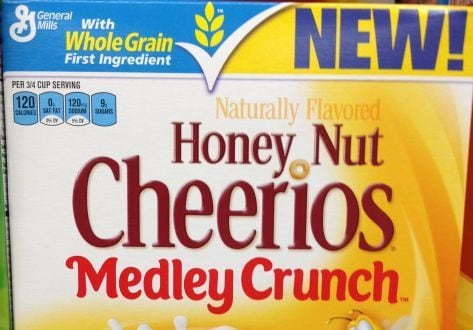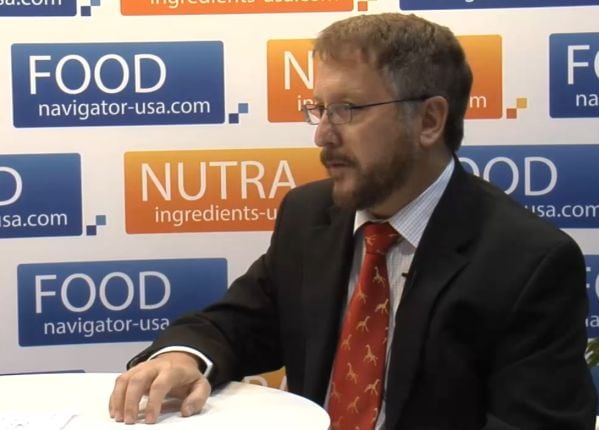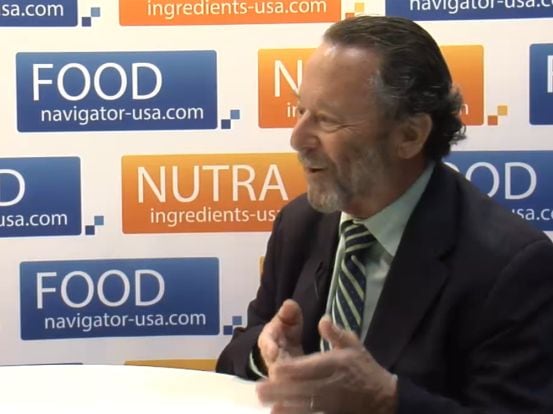In the 38-page report 'Deception at General Mills', GMO Inside and Green America argue that "selling products with GMO ingredients is not socially or environmentally responsible”, and call on Gen Mills to "be the first major food corporation to announce a phase-out of GMOs in its products, starting with Cheerios".
The report - which singles out General Mills because it has been a major contributor to ‘No’ campaigns on GMO labeling initiatives in California and Washington - urges it to phase out GMOs by 2018, adding: “Today is full of possibilities... Is one of those possibilities that you could protect the future of our children’s food supply by eliminating genetically engineered ingredients from your products in the US?”

It was published as Washington State's Attorney General Bob Ferguson filed a lawsuit against the Grocery Manufacturers Association (GMA)* accusing it of violating state campaign disclosure laws by collecting $7.2m to support the ‘No’ campaign vs GMO labeling initiative I-522, but hiding the identity of contributors such as Gen Mills.
GMO Inside: The elimination of GM crops is a priority in establishing a sustainable and safe food supply
While some advocates of GMO labeling say they are chiefly concerned with transparency (consumers have a right to know what they are eating), GMO Inside argues that the elimination of GM crops should be a "a priority in establishing a sustainable and safe food supply".
Meanwhile, GMOs may have “alarming health impacts” and “have not been proven safe for human consumption”, alleges the report, which also says GM crops have "failed to deliver promised increases in yields”.
Plant geneticist: ‘GMO Inside is entitled to its own opinion, but it is not entitled to its own facts’

However, Dr Wayne Parrott, professor of Crop Science at the University of Georgia, said eliminating GM crops would not make the world’s food supply any safer and certainly wouldn’t make it more sustainable.
He told FoodNavigator-USA: “GMO Inside is entitled to its own opinion, but it is not entitled to its own facts. This report is simply a collection of discredited studies, half-truths, and information out of context.
“The fact remains these are the most tested foods in history, and not a single regulatory agency in the world- ranging from Europe to Japan, can find any safety issues from them.
“GMO Inside's campaign can only serve to destroy the economic and environmental benefits these crops have brought to rural areas around the world.”
Professor: Claims in report are totally baseless and without merit

Dr Bruce Chassy, Professor Emeritus of Food Science at the University of Illinois at Urbana-Champaign, said the claims in the report were "totally baseless and without merit".
He added: "17 years of evidence shows that GM crops both increase production and make agriculture more sustainable. The USDA has published US data that show that. Farmers pay more for GM seeds and each year more and more of them plant more and more acres. Do you really think farmers are so stupid that they pay more to get less?"
Each year two economists, Graham Brookes and Peter Barfoot at UK firm PG Economics, publish an analysis of the environmental impact of GM crops, he said.
"And each year it shows gains in green house gas reduction from the switch to GM agriculture, enhanced soil and water quality, enhanced soil and water conservation and a host of other benefits that lead to the conclusion that GM crops are a more sustainable form of agriculture.
"So why would any responsible group call for elimination of GM crops? The conclusion is that groups that make such demands are either uninformed or are deliberately trying to misinform others.
"Perhaps it's time to ask what their motives are, who supports their global campaign against GM crops and why they advocate for less productive, more expensive, and more environmentally stressful forms of agriculture."
Do you really think farmers as so stupid that they pay more to get less?
However, he was equally critical of large food companies that he argued have failed to engage in the debate (General Mills for example is not commenting on this report, and refers journalists to scientific and regulatory bodies to field questions).
"The food industry has had 20 years to explain GM to the public. Their intransigence and avoidance of the issue has been a big contributor to the ability of a few well-financed and highly skilled information terrorists to trash the image of GM foods.
"They used the old ostrich trick when it came to GM. I can't tell you how many food company executives I have heard say it's not their job, it's not their business, or they didn't have a dog in that fight."
BIO: Farmers would not use GM crops if they did not deliver benefits
Meanwhile, Karen Batra, Director, Food and Agriculture Communications at the Biotechnology Industry Organization (BIO) said it was frustrating to see GMO Inside ascribe the same weighting to a handful of discredited studies alleging health risks from GMOs as hundreds of studies that conclude there is not a health risk from GMOs.
“There have been two animal studies released in the past year that erroneously suggest there are health impacts associated with GM crops and foods. But both of those studies were so widely debunked by the scientific community that one would have to be living under a rock for the past year to give them so much as a mention.”
As for the environmental impacts of GM crop production, she said: “There are well-respected peer-reviewed analyses which establish that the adoption of GM crops has benefited farmers and the environment such as Brookes G and Barfoot P (2012) Global Impact of Biotech Crops: Environmental Effects, 1996-2010, GM Crops 3: 2 April-June 2012, p 1-9 ).

“The weight of evidence confirms that GM crops help make food production more sustainable (see Carpenter, J (2010), while peer-reviewed surveys indicate the positive impact of commercialized GM crops, Nature Biotechnology 28, 319–321 (2010).
Meanwhile, a review of the scientific literature on GE crop safety published in Critical Reviews in Biotechnology last month, concluded that “GE crops should be considered important options in the efforts toward sustainable agricultural production”.
GMO debate so polarized that it has ceased to be constructive, says Packaged Facts
Whether there is any middle ground in this debate remains to be seen, with a recent report from Packaged Facts noting: “Much of the back and forth on the benefits and dangers of GMO ingredients and foods has passed beyond being a reasonable discussion of scientific data into a public relations battle between two sides trying to control a narrative.”
*The GMA said in a statement today it was "surprised to learn that the Washington State authorities viewed the association’s actions as improper" but will "review its actions in Washington State and relevant statutes and continue to cooperate with state authorities to fully resolve the issue as promptly as possible".
